The Tale of Tamil Nadu’s Warrior Poet Who Fought the British with His Words!
Bharatiyar was many things. He was a revolutionary, a visionary, and above all a poet with immeasurable talent. In his short life of 38 years, he spread the message of Swaraj fearlessly.
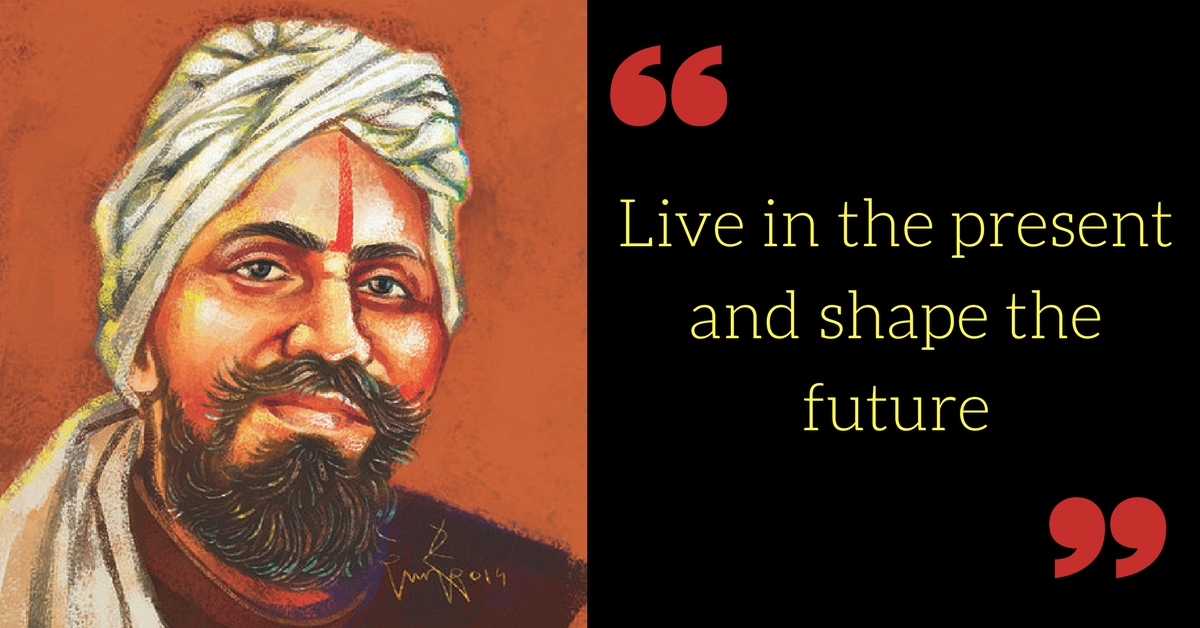
His songs were of patriotism, his words were that of a free spirit, and he lived for his vision of an independent India, until his last breath. While Tamilians all over the world continue to sing the songs he penned even today, not many people know about this revolutionary poet whose words had the power to incite change. His name was Bharatiyar.
Born in 1882 as Chinnaswami Subramania Iyer, he grew up in the small village of Ettayapuram, in the Tirunelveli district. Even at a young age, he showed signs of musical ability, and by age eleven, he had begun writing poetry.
It was because of this precociousness that people began calling him “Bharati,” meaning, “the one blessed by Goddess Saraswati.”
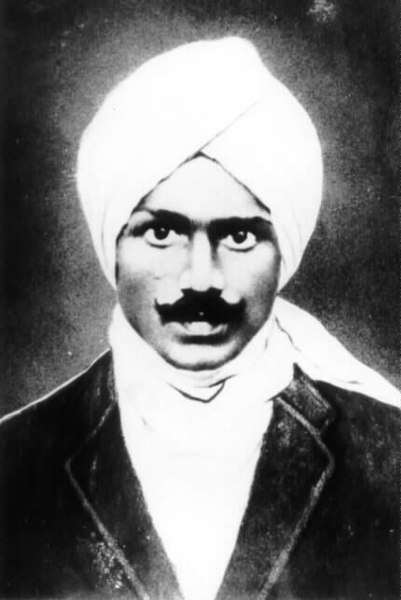
Married when he was 15, to Chellamma, Bharatiyar lost both his parents by the time he was 16. After his father’s demise, he decided to go to Varanasi, where he was exposed to the spirit of nationalism, and became enamoured with the Sikh culture, even donning his own turban (one of his distinguishing features.)
While it is rumoured that Bharatiyar knew several languages, it is known that he was well-versed in Tamil, Hindi, Sanskrit, and English, among others.
Although he was offered a job in Varanasi, his love for his hometown brought him back to Ettayapuram in 1901, and he took his place in the court of the Raja of Ettayapuram, as a poet. However, this position was short-lived; and his interest in writing and his natural concern in India’s progress led him to journalism.
In 1904, he became Assistant Editor for Swadesamitran, a Tamil daily, started as a sister paper to The Hindu. The paper quickly became notorious in British India, for its criticism of the government and its call for nationalism, and independence.
You may also like: How a Poet Who Had Never Had Alcohol Mesmerised Us About a Madhushala
During his tenure as an Assistant Editor, he attended the All India Congress sessions and was enamoured by ideas of Swaraj. Speaking with prominent figures such as Dadabhai Naoroji, and Sister Nivedita (the spiritual heir of Swami Vivekananda), Bharatiyar continued to develop his nationalistic perspectives, and it fuelled his desire to see an independent India.
While Swadesamitran was oriented towards criticism of British rule, the poet and artist that Bharatiyar had always been found his outlet in publications like India and Bala Bharatham, of which he was a co-editor.
Through these papers, he published several poems, from hymns to the profound relationship between God and Man.
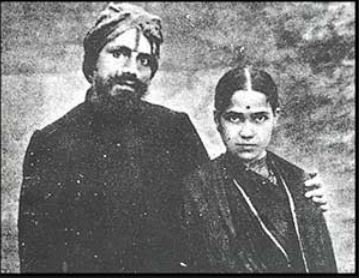
His actions did not go unnoticed for long. The proprietor of India was arrested in 1908. Faced with the threat of imprisonment, Bharatiyar was forced to escape to Pondicherry, which was at the time under French rule. While he continued to edit and publish India, Bala Bharatham, and other publications such as Suryodayam and Vijaya, the British tried to suppress his reach to the public. Eventually, both India and Vijaya were banned in 1909.
During this self-imposed exile in Pondicherry, Bharatiyar had the opportunity to interact with revolutionary thinkers, who shared the same ideology as him. Lala Lajpat Rai, Sri Aurobindo, and VVS Aiyar were just some of the people with whom he regularly discussed politics and ideas.
Apart from politics though, it was in Pondicherry that Bharatiyar created what is today seen as his most significant works.
His research and understanding of Vedic literature inspired creations such as Kuyil Pattu, Panchali Sapatham and Kannan Pattu, which were composed in 1912.
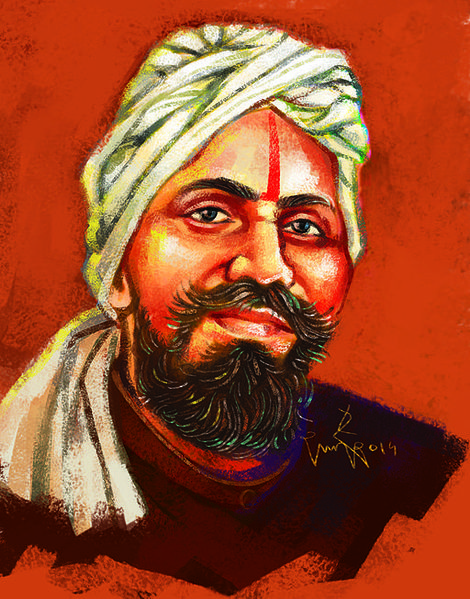
Panchali Sapatham was incredibly unique, as it likened Draupadi to women in India, tied and bound by the shackles of society, while the Pandavas were depicted as Indians, and the Kauravas as the British.
In 1918, he decided to re-enter British India through Cuddalore and was promptly arrested. He was Imprisoned at the Central Prison in Cuddalore for three weeks. After his release, he suffered bouts of illness and was struck by poverty.
Nevertheless, in 1920 he resumed editing for the Swadesamitran, continuing to use his voice to speak against actions he found wrong. Many considered his vision to be much before its time, and for the era, he lived in, were extremely progressive. He was one of the first advocates for feminism, believing that women deserved to have a place in politics and education. In fact, his poem, titled Pudhumai Penn, meaning “modern women,” includes the following lines:
“Her head held high, and looking everyone in the eye,
Unafraid of anyone because of innate integrity,
Possessing assuredness born of courage of conviction,
The modern woman never feels inferior to any”
He also fought against the caste system, writing, “There is no caste system. It is a sin to divide people on caste basis. The ones who are really of a superior class are the ones excelling in being just, wise, educated and loving.”
In 1921, he was struck by an elephant. Although he survived the incident, a few months later, his health deteriorated and he succumbed to the illness, passing away at the young age of 38.
While he was seen as a visionary, nationalist, and a freedom fighter in his own right, it was reported that only 14 people attended his funeral.
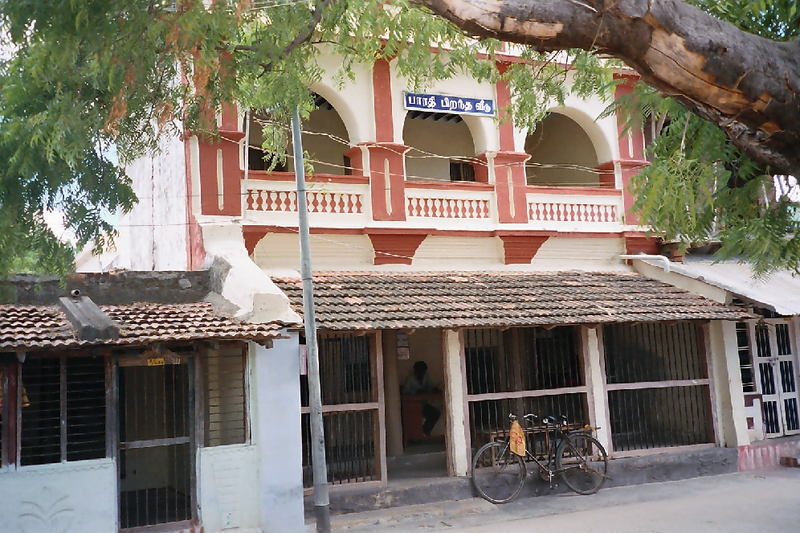
So loved was he by the people of Tamil Nadu, that they conferred him the title Mahakavi, meaning “great poet.” His poems became songs in several movies, and continue to be sung by people all around the world. While he never lived to see a free India, it was his words that rallied Tamilians to take part in the Swadeshi movement. He dared to wield the power of words, which were his weapon of choice against the British, and that made him a genuine revolutionary, forever etching his name in history.
Like this story? Or have something to share?
Write to us: [email protected]
Connect with us on Facebook and Twitter.
NEW: Click here to get positive news on WhatsApp!
If you found our stories insightful, informative, or even just enjoyable, we invite you to consider making a voluntary payment to support the work we do at The Better India. Your contribution helps us continue producing quality content that educates, inspires, and drives positive change.
Choose one of the payment options below for your contribution-
By paying for the stories you value, you directly contribute to sustaining our efforts focused on making a difference in the world. Together, let’s ensure that impactful stories continue to be told and shared, enriching lives and communities alike.
Thank you for your support. Here are some frequently asked questions you might find helpful to know why you are contributing?


This story made me
-
97
-
121
-
89
-
167











